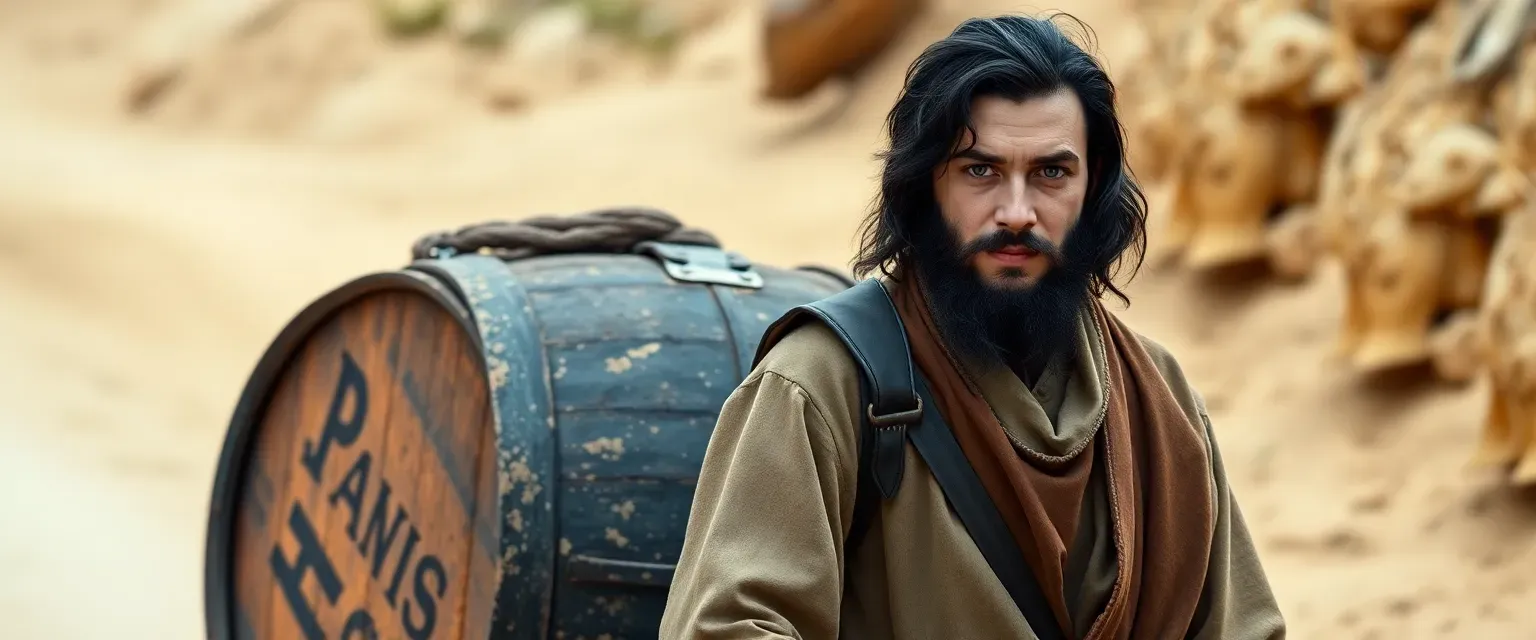Doody, a barrel-shaped man with a robust frame, is a medieval carter known for his distinctive appearance and jovial demeanor. His black hair, often tangled and unkempt, cascades down to his shoulders, mingling with a thick, unruly beard that frames a face marked by the sun and wind of countless journeys. His brown eyes, deep and thoughtful, reveal a man who has seen much of the world's harshness yet chooses to greet it with a smile. Doody's attire, a simple yet sturdy tunic and breeches, is often covered in the dust of the road, a testament to his tireless work.
Born into a family of carters, Doody has always been drawn to the freedom of the open road, yearning to explore beyond the confines of his small village. His dream is to journey to distant lands, to witness the wonders and cultures that exist beyond the horizon. However, his responsibilities to his family and the village's reliance on his services tether him to his current life. Despite these constraints, Doody finds solace in the stories he collects from travelers and the occasional short trip to nearby towns.
Doody's unique trait is his infectious laughter, a booming sound that can lift the spirits of even the most weary traveler. He uses this gift to bring joy to those he encounters, often sharing tales and songs around campfires. This approach not only enriches his own life but also subtly influences those around him, encouraging them to share their own stories and dreams.
His life is not without conflict; the constant tug between duty and desire weighs heavily on him. Yet, Doody's unwavering optimism and his ability to find joy in the journey itself help him navigate these challenges. As he continues to cart goods across the land, he dreams of the day when he might finally set out on his grand adventure, a journey that he believes will come when the time is right.
In the end, Doody's story is one of hope and perseverance. Though he may never reach the distant lands he dreams of, he finds fulfillment in the small victories and joys of his daily life, proving that sometimes, the journey itself is the destination.
